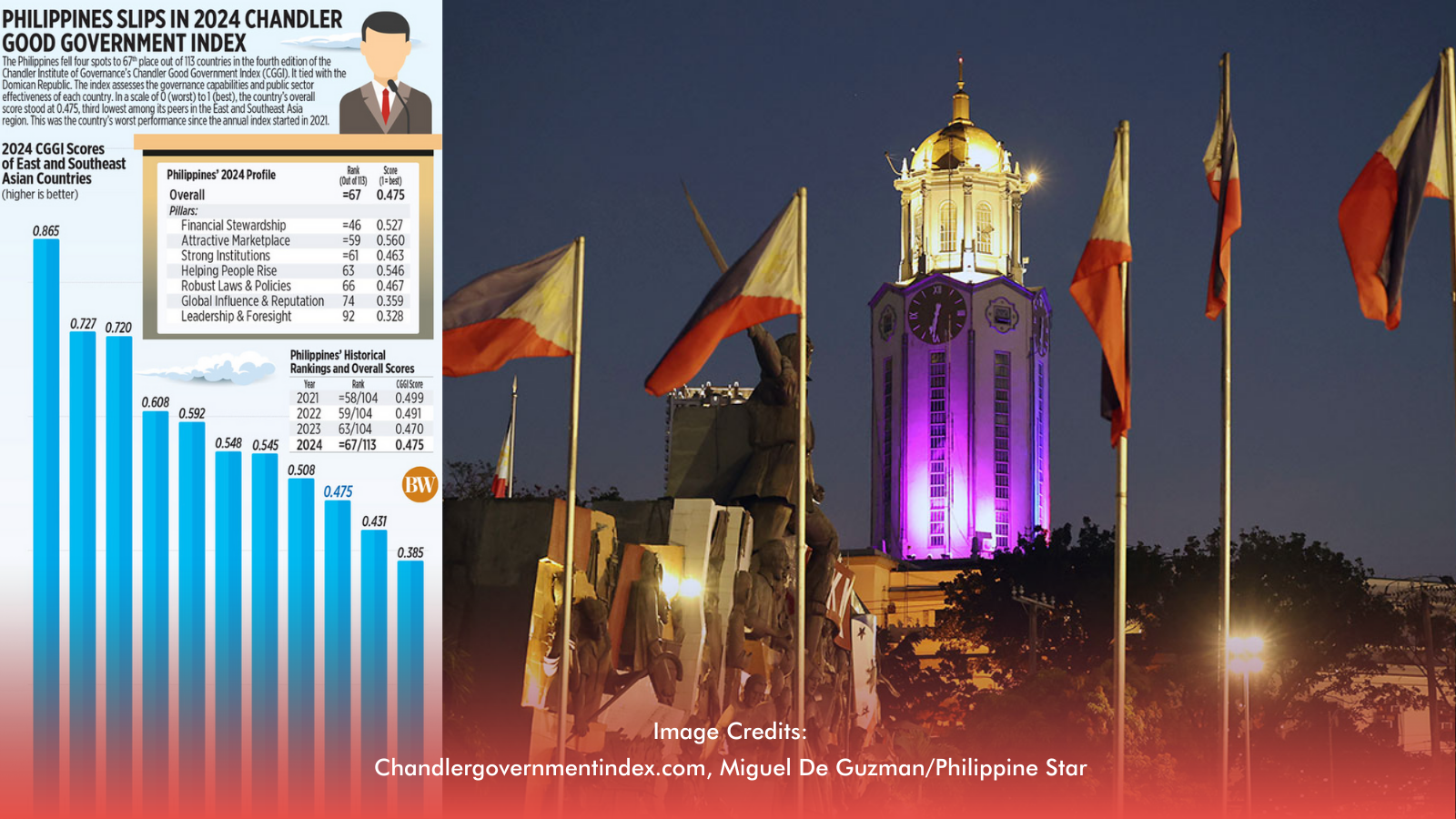For over a decade, the Philippines has struggled to climb out of the lower tier of Transparency International’s Corruption Perceptions Index (CPI), a global ranking that reflects how experts and business leaders perceive corruption in the public sector. The country’s stagnant scores point to systemic problems that go beyond numbers and into the very core of governance.
Stagnant Scores Over a Decade
The CPI uses a scale of zero (highly corrupt) to 100 (very clean). From 2012 to 2024, the Philippines’ scores hovered between 33 and 38, showing little progress. In 2014, the country reached its highest score of 38, but since then, the numbers slid back into the mid-30s.
In the 2024 index, the Philippines ranked 114th out of 180 countries with a score of 33, down slightly from 34 in 2023. According to Dr. Rogelio Alicor Panao, Inquirer Metrics data scientist and UP associate professor, the trend reveals a “broader pattern” of stagnation rather than genuine improvement.
How the Philippines Compares Globally
The Philippines’ low placement becomes starker when compared with neighbors. Singapore (83) and New Zealand (85) remain among the cleanest countries, while the Philippines is grouped closer to countries facing chronic governance challenges.
In 2023–2024, other low-scoring nations included North Korea (17), Myanmar (20), Afghanistan (20), Cambodia (22), Bangladesh (24), Laos (28), Pakistan and Papua New Guinea (29), Mongolia (33), Sri Lanka and Indonesia (34), Nepal and Thailand (35), and India and Maldives (39).
“If the numbers have not moved for more than a decade, perhaps the harder question is whether we, as citizens, have moved enough to demand better,” Panao said.
The Shadow of Ghost Projects
Recent revelations have further highlighted why corruption perception remains high. President Ferdinand Marcos Jr. disclosed that only ?100 billion of the ?545-billion flood mitigation budget from July 2022 to May 2025 was awarded to just 15 out of 2,409 accredited contractors. While careful not to accuse contractors directly, Marcos described the findings as a “disturbing assessment,” with certain names “standing out very much.”
For many observers, the issue of “ghost” projects encapsulates the country’s corruption problem: weak governance, lack of transparency, and insufficient accountability. Until systemic reforms and stronger citizen demand for integrity take root, the Philippines risks remaining stuck in the lower ranks of the global index.








